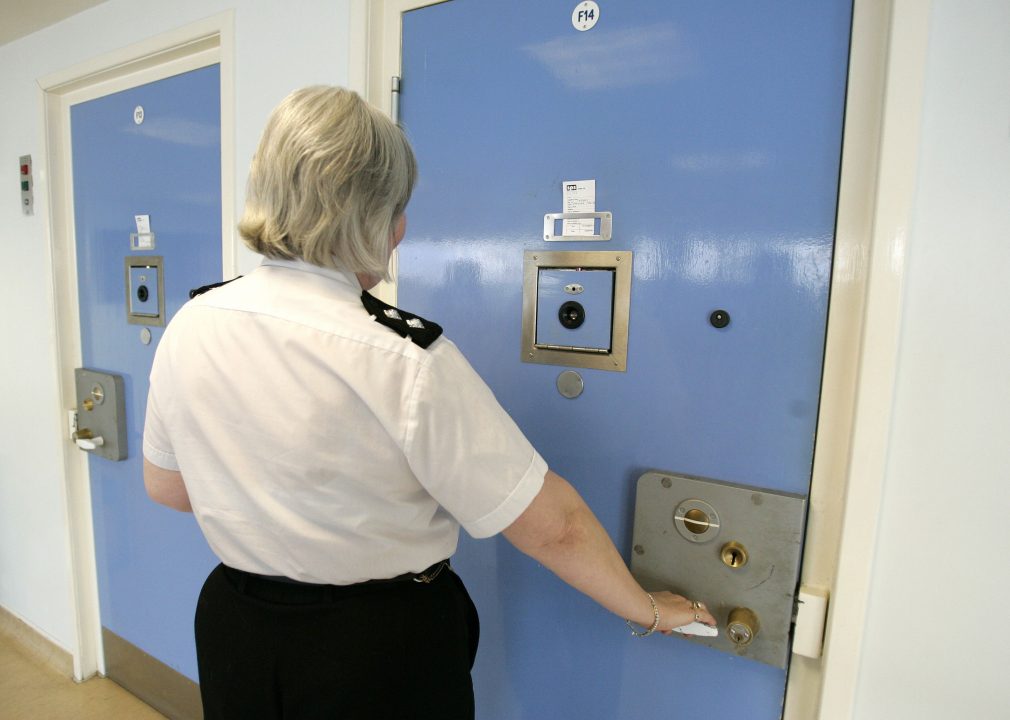Prisons could be made to photocopy all letters sent to prisoners in an attempt to stop drug-soaked paper getting through to inmates, Scotland’s justice secretary has said.
Asked about six HMP Shotts prisoners being taken to hospital following suspected overdoses last weekend, Keith Brown announced plans to only give photocopied versions of letters and documents to prisoners.
It follows warnings that paper soaked in diluted drugs is getting through undetected to prisoners.
But Scottish Conservative MSP Russell Findlay, who challenged Brown about the overdoses, also warned that it was prison policy to return “drug-soaked mail” to prisoners when they are released and said worried prison officers “feel complicit in what they describe as state-sponsored drug dealing”.
Brown told MSPs he was receiving daily updates from the prison and has had discussions with the interim head of the Scottish Prison Service about the drug problem they face.
He said: “The use of illegal drugs in prisons can’t be tolerated and the Prison Service have a comprehensive range of robust security measures in place to prevent the introduction of contraband to entering our prisons.
“I’m pleased to confirm today in addition to that – after detailed operational consideration, which is necessary – the decision has been taken to implement photocopying of general correspondence.”
The proposal will require the backing of parliament and will have to be considered by Holyrood’s Justice Committee before being implemented.
Findlay said the announcement was “welcome, but long overdue” and raised the issue of drug contraband rarely being collected by Police Scotland despite being reported to them.
Reading a letter from the prison service setting out their policy about belongings discovered to contain drugs, he added: “The drug-soaked items are stored, then handed to prisoners upon their release from custody.
“Officers are angry and worried. They feel complicit in what they describe as state-sponsored drug dealing.
“Can the Cabinet Secretary explain this extraordinary policy?”
Brown replied: “I don’t think it’s right to call prison officers drug dealers, even to try and make a political point, in my view.
“However, it is a serious issue. It is one he knows – I’m sure, if he has had correspondence from the interim chief executive – that is being taken very seriously, and has been discussed with the police as well.”
Speaking after the announcement, Findlay added: “This move will help tackle the drugs crisis in prisons across Scotland.
“It vindicates prison staff who have been put in increased danger through the widespread prevalence of dangerous substances.
“It is scandalous that it took the overdose of 10 prisoners at maximum-security HMP Shotts for staff to be listened to, despite the Scottish Conservatives raising this issue over and over again to the SNP Justice Secretary.
“Not only are far too many lives being lost, but these overdoses have caused massive increased pressure on our ambulance service and hospitals.”
During an evidence session of the parliament’s Justice Committee last month, HM Inspectorate of Prisons for Scotland, Wendy Sinclair-Gieben, said that despite staff being “phenomenal” at preventing many drugs getting in, it was still a “major, major issue”.
She said: “When I talk about revising the prison rules, one of the things that needs to happen is a reduction of the drugs coming in through the post in almost undetectable quantities.”
Sinclair-Gieben gave the example of forged letters from solicitors being soaked in psychoactive drugs, suggesting that all communication could instead be done electronically or photocopied.
“You’re always playing a catch-up game with drugs,” she said.
“It’s a major problem in prison, it’s a major problem stopping it coming in, and it’s a major problem providing support and rehabilitation to prevent people wanting to take drugs.”
Follow STV News on WhatsApp
Scan the QR code on your mobile device for all the latest news from around the country


 PA Media
PA Media
























